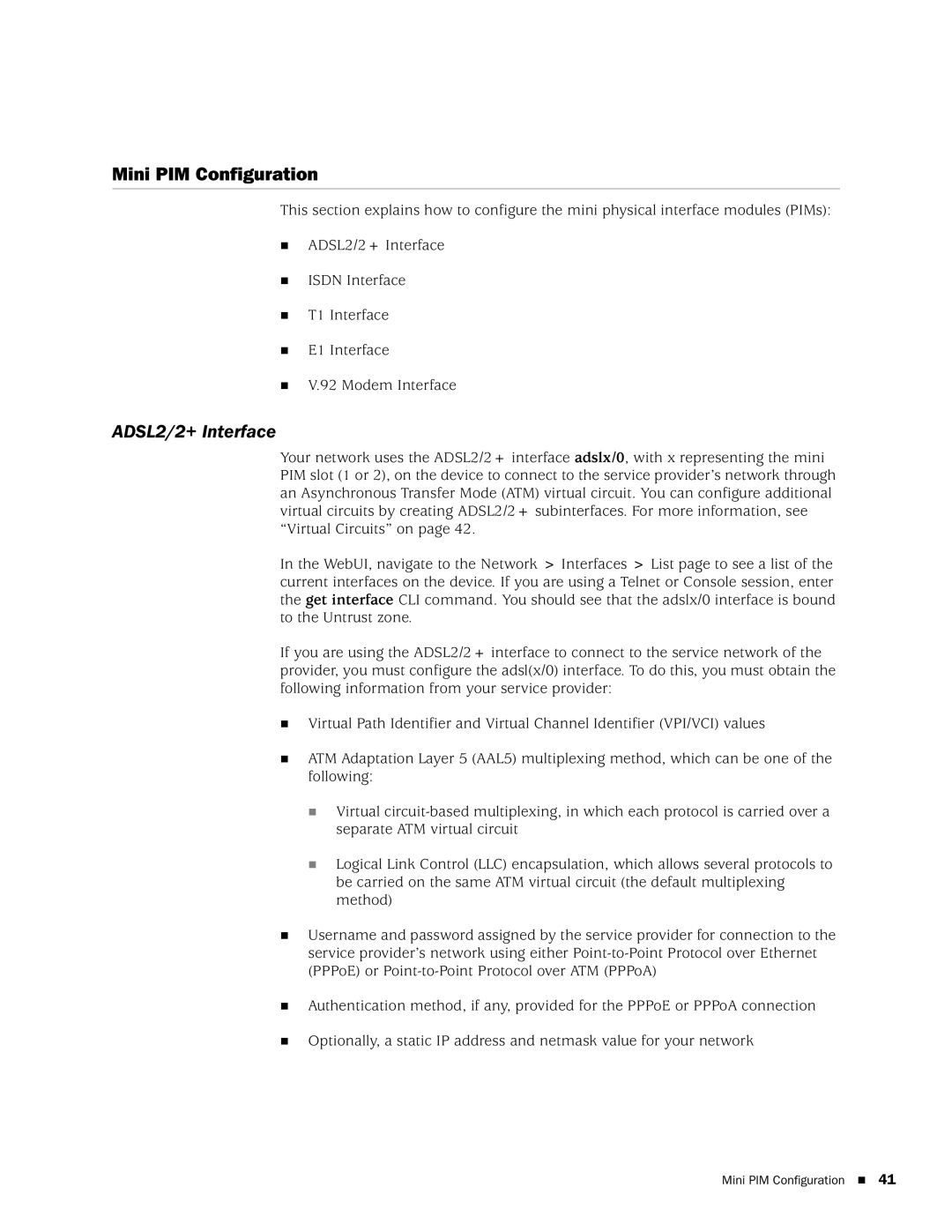Mini PIM Configuration
This section explains how to configure the mini physical interface modules (PIMs):
ADSL2/2+ Interface
ISDN Interface
T1 Interface
E1 Interface
V.92 Modem Interface
ADSL2/2+ Interface
Your network uses the ADSL2/2+ interface adslx/0, with x representing the mini PIM slot (1 or 2), on the device to connect to the service provider’s network through an Asynchronous Transfer Mode (ATM) virtual circuit. You can configure additional virtual circuits by creating ADSL2/2+ subinterfaces. For more information, see “Virtual Circuits” on page 42.
In the WebUI, navigate to the Network > Interfaces > List page to see a list of the current interfaces on the device. If you are using a Telnet or Console session, enter the get interface CLI command. You should see that the adslx/0 interface is bound to the Untrust zone.
If you are using the ADSL2/2+ interface to connect to the service network of the provider, you must configure the adsl(x/0) interface. To do this, you must obtain the following information from your service provider:
Virtual Path Identifier and Virtual Channel Identifier (VPI/VCI) values
ATM Adaptation Layer 5 (AAL5) multiplexing method, which can be one of the following:
Virtual
Logical Link Control (LLC) encapsulation, which allows several protocols to be carried on the same ATM virtual circuit (the default multiplexing method)
Username and password assigned by the service provider for connection to the service provider’s network using either
Authentication method, if any, provided for the PPPoE or PPPoA connection
Optionally, a static IP address and netmask value for your network
Mini PIM Configuration 41
